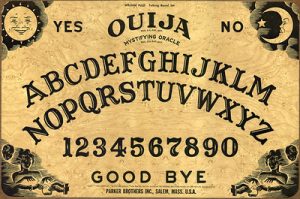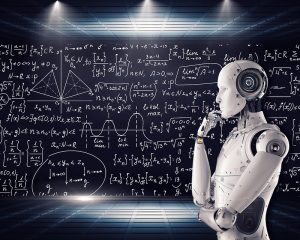A weekend camping trip gone awry….
 and an Ancient Greek tax treaty.
and an Ancient Greek tax treaty.
Transcribed text (using speechnotes.co, Sept 25, 2021)
Saturday at like to tell the story about my name my name is Dalyan which is the name that I have never really come across before with anyone other than me the sides now my best one of my best friends who’s named her daughter billion so now I know there are two dalliance in the world the way my story the story of how my name is created is a bit strange so my parents were to hippies living in the Pacific Northwest they were living in Seattle in the early 70s early 1970s and they decided to go on a camping trip up Mount Rainier and when they went on a camping trip they took ouija board with them and they were there for the weekend and I think they might have been doing some maybe some hallucinogenic some sort because when they were doing an acting their can play with her playing with this ouija board board that came across a spirit a story goes and they the spirit was very very friendly at first and they are some also it’s a question they are suspended all sorts of questions like when is our how many children are we going to have the spirits of release at 5 and then they asked well what are their names going to be and the spirit said the names would be deleon Iran Jamel lyric and fifth one is so but there were five children that they were going to have and so they continue to work with this spirit and I guess things got a bit creepy and the spirit got angry and close the Ouija board down and they said we will never you know interact with ouija board again that the entry to the spirit world is a you know it’s possible to have that effect so anyway they actually I grew up not able to use a Ouija board are being told that I should never use a Ouija board so I I knew about my parents getting my name from a Ouija board which one you’re you know a teenager at a certain age you don’t really want to share that information with your friends because they think it’s kind of weird but as I got older I think it’s kind of funny no still didn’t know anything about what my name actually meant you know does my name is it just a bunch of jumbled letters put together by you know my parents are moving their fingers around the Ouija board and Evelyn new until I was about I think about 8 or 9 but I remember being in my public library and there was a large book the sat nav a book of an encyclopaedia mean it was the biggest encyclopaedia I had ever seen and I opened up that big encyclopaedia that was bigger than meit’s aimed at that point and I looked to the d-section and I I could find the words d e l i a n which is my name Gillian and I was expecting it to mean something I don’t know like a flower or joy or something but I found out that it actually is related to someone who is from the island of delos or dellows and so that was supposed to have been the birthplace of Apollo and Artemis later on in history actually deleon as as a name as a n adjective was used in a maritime tax treaty when that was used to tax ships and in order to fund the rebuilding of Athens after was sacked by the Persians I understand so in the end my name wasn’t quite so romantic in its origin I do think it’s interesting that it comes from the island of delos because my second name my middle name is done so my first name has to do with Apollo and dealers will forget about the maritime tax treaty and my second name has is done so both to do with the sun so that is the story of my name and I think that it’s it’s an interesting so thanks a lot for listening
_______________________________________________________________________________________________________________
An analysis of my transcription.
What’s “wrong” and what’s “right” in the text.
This was me telling the story of my fairly unusual name. First, of all, my name is Delian [d e l i: e n] and my middle name is Dawn (not ‘done’). I have spent many minutes (hours) of my life correcting people’s pronunciation of my name, so it was amusing to see the different ways this transcription software attempted to make sense of the sounds I was making. The system made seven different attempts to figure out what I was saying when I said my name (I’ve put these in bold in the transcript), but the only time the system could spell my name correctly was when I spelled it out using alphabetical letters (d e l i a n). When the software tried to analyze the acoustic sounds I was making and match these sounds to phonemes, obviously it had not be trained to recognize my particular way of saying my name. I understand that issues of accent, pace of speech, whether I was clearly articulating sounds as a spoke, and whether this particular speech recognition system had ‘heard’ these phonemes in this context (training) before all affected how accurately the system could reproduce what I was saying.
I have a background in Applied Linguistics for my first MA, but it’ been a few years since I thought about the connections between machine-based learning and how English phonemes could be ‘understood’ or reproduced so, I brushed up a bit on my applied linguistics reading (e.g. Woodford’s great Explain that Stuff article on about how speech recognition software works) to realize that the system is making these predictions based on the 46 basic component sounds (phonemes) in English. At the phonemic level for the other sounds I was making, the system was able recognize and make predictions about basic grammatical contractions like, it’s and don’t, and knew some of the sounds were proper nouns (with capital letters, like Apollo and Artemis, and ”Daylan” because I had preceded this sound with the sounds for ‘my name is…’). Also, at least 80% of the verbal utterances I was making were accurately represented in their correct word ‘sign’. This is impressive from a free-to-use speech to text platform that I had never used before because as Schmandt-Besserat (2009) explains English is a alphabetic language that combines consonants and vowels into 26 signs or ‘letters’, but as all learners of English know, these letters don’t correspond directly to a specific phoneme (Gnanadesikan, 2011). So all quite impressive and positive to a degree.
Actually it’s so interesting that this task has us play with the struggles of technology to create a written form of an oral ‘voicing’ (Ong, 2002) when we’ve spent the week reading about how writing evolved to represent something (accounting? funerary details? pleas to the gods?) that was primarily oral. This task flipped the IT Question kind of on its head.
What really bothered me about the transcription was at the syntax and morpheme level. There were quite a few incorrect guesses made by the system, and some parts of the transcription were actually nonsensical. For example:
…they are some also it’s a question they are suspended all sorts of questions like when is our how many children are we going to have the spirits of release at 5 and then they asked well what are their names going to be and the spirit said the names would be deleon Iran Jamel lyric and fifth one is so but there were five children that they were going to have and so they continue to work with this spirit and I guess things got a bit creepy and the spirit got angry and close the Ouija board down...
My intuition based on this particular speech recognition program (being free to use and available to anyone who is computer literate enough and motivated to speak into a dictation tool like this) is using some simple pattern recognition together with a language model ‘(the rules of the language) and statistical analysis to help it make a ‘best guess’ about speech that it is attempting to match to a written sign.
And, this is where the text deviates from what is usually expected in a written text: structure (beginnings and endings) at the sentence and paragraph level, punctuation that helps the reader break up the text into readable chunks (full-stops, commas). I purposely did not rehearse this story and did not use the tools I could have used in speechnotes to add these structural elements (punctuation, paragraphing, etc.) because I wanted to see just how well I could create a ‘rhetorical’ speech (well, I told a story, so not exactly a speech which we learned from the Ancient Greeks, has a ‘defense’ to prove). Instead, here I tried to ‘voice’ a story to a friend, so there was a general story-telling purpose, but I did not try to model this speech act so it would be analogous in writing.
For me, as a literate person in terms of my ease with reading and writing academic texts, the orality of my communication is the transcript is jarring to read (but not to hear). If I read it back out loud to myself, it gains more comprehensibility, but the technology has got in the way because it has made inaccurate guesses about the words and sounds I was uttering. The other oral elements in the transcript, such as the repetitions of words, the more meandering flow of my story, full of stops and starts (which aren’t captured because I did not use the punctuation tools) are not errors, but are more natural in oral communication, especially of type we were instructed to do in this task. However, my discomfort with how this transcripts ‘looks’ and my awareness of this need for a certain structure, purpose and punctuation, this may show how writing has changed how I approach communication (thinking about ‘The Technology Question’).
What if you had “scripted” the story? What difference might that have made?
If I had scripted this story, I would have approached it from a written perspective. Thinking that I needed to have a beginning, middle and end, with a clear ‘hook’ at the beginning, some repetition of key words to help my audience follow along. I would have used more evocative vocabulary, and probably my story would have been longer because I would have added longer, more structured sentences with more examples in true written form. However, I have written many scripts for lessons in eLearning modules and I find that it is difficult to write in a way that is purely oral. This is an issue that I notice in my students as well, which is another topic of discussion because most of them are Chinese students who have been taught to memorized characters by rote learning, and thus have incredible memories – even for memorizing vast scripts though they still sound ‘read’ not spoken. I find that I agree with Ong that speech and writing are vastly different – especially if we consider the oral elements of voice (stress and rhythm of spoken language) and how body language adds to verbal communication. These elements are not translated into the English sign system, so writing down and following a written structure for a story that will be presented orally usually detract from the spoken communication (unless the speaker is practiced and/or skilled at translating written text back into speech). I think this kind of oral literacy – the ability to speak without scripts and notes is one that we should foster in ourselves and our students (though I’m not suggesting I would love for everyone to have to learn to debate like an Greek orator!).
In what ways does oral storytelling differ from written storytelling?
A good storyteller is orally literate, and is able to use non-verbal body language or other sounds to emphasize key points. Most stories that are truly oral (not written down and read out), are shorter (with the exception of the epic poems, that may have first been orally disseminated before they were written down). Another big difference between oral and written storytelling, is to do with the written version being set down as a ‘message in space’ (Gnanadesikan, 2011). Most oral stories will probably vary in their telling: different words, different pacing, different details depending on the teller and the audience, but written stories, especially those in print, tend to be in one set form (though maybe online storytelling with a Choose your own adventure story could vary).
Written storytelling also requires the teller and the reader to both be literate in the sense that they both understand the signs being used for the written story. One may argue that the access to the written stories may be more restricted because it will be found only in certain places (libraries, bookstores). In many wealthy places like Canada and Hong Kong, the push for mass literacy has resulted in the vast majority of the population being able to read these written stories if they had the access and motivation (reading for pleasure is not a common trend here amongst Hong Kong students), which leads me to ponder about this question of whether writing has ‘weakened’ our memories?
Concluding thoughts

As a literate person in Hong Kong in 2021, I have so many ways and means to be literate: to write down, remind, calculate, transcribe my fleeting thoughts, but this dependency on my written literacy does not challenge me to use my range of oral literacy skills. I am very curious to learn how AI and voice recognition software can help our aging societies, but I am still wondering if it will actually benefit what we have traditionally valued in academia (the ability to read and write to produce ‘text’ that oral or written can produce and defend an argument).
Reading Gnanadesikan, Schmandt-Besserat and the others this week, made me nostalgic for my past studies in linguistics, anthropology and archaeology, but I feel that the ‘Tech’ we are developing now, and over the last few decades is changing what ‘literacy’ actually means right now. If human minds needed to question how writing may have changed our cognition and cultures, how will use of AI and constant access to social networks do the same?
References:
Gnanadesikan, A. E. (2011).“The First IT Revolution.” In The writing revolution: Cuneiform to the internet. (Vol. 25). John Wiley & Sons (pp. 1-10).
Schmandt-Besserat, D. (2009). “Origins and Forms of Writing.” In Bazerman, C. (Ed.). Handbook of research on writing: History, society, school, individual, text. New York, NY: Routledge.
Ong, Walter, J. Taylor & Francis eBooks – CRKN, & CRKN MiL Collection. (2002). Orality and literacy: The technologizing of the word. New York; London: Routledge.
Woodford, Chris. (2006/2020) Speech recognition software. Retrieved from https://www.explainthatstuff.com/voicerecognition.html. [Accessed 2021/09/25]
DEREKDOHERTY
November 7, 2021 — 12:15 pm
He Delian,
I appreciated how you began by taking a ‘look under the hood’ and exploring how the technology worked. It made me think of how I sometimes take such wondrous technology for granted; often focusing on what it got wrong and how it frustrated me.
You talked about how jarring it was read your piece after it had been transcribed. I had a similar feeling about my own. I guess it is something like what most of us feel when we watch ourselves on video (presenting or teaching). We tend to focus on our mistakes rather than all of the stuff we did well. Perhaps if this type technology does become more commonplace (and I think it will) we will also become less critical of ourselves and revise our expectations of what is considered a good piece of writing.